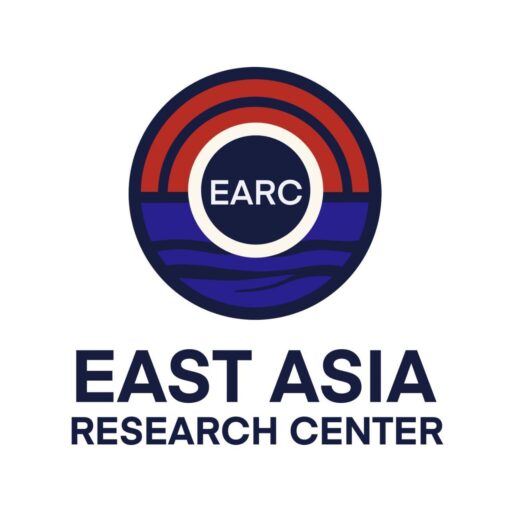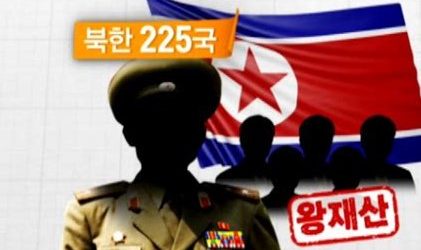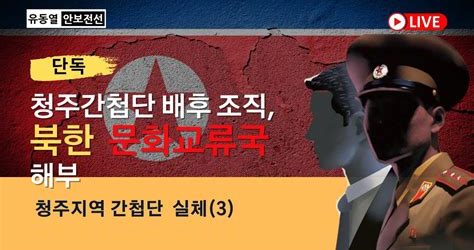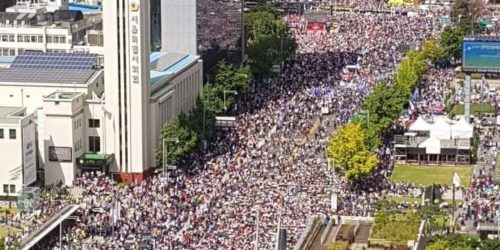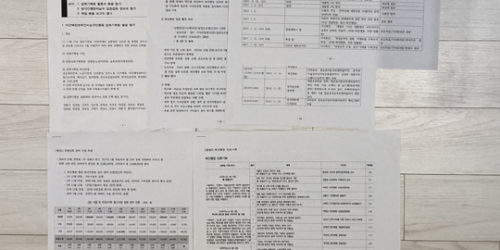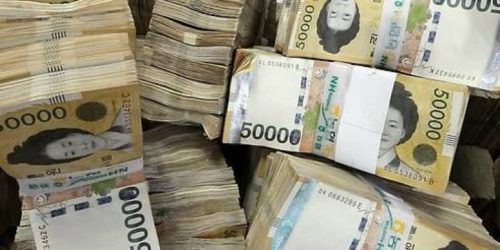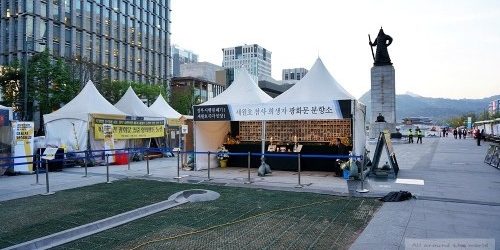Cho Kuk, Hankyoreh, KBS, MBC, RSF and the Freedom of the Press in South Korea
2019-9-29, Tara O
As the controversy over Cho Kuk’s corruption, nepotism, and other scandals become bigger, there are also those in the media who are fighting for freedom of the press in South Korea, particularly reporting on the issue of Cho Kuk. It appears that Hankyoreh, KBS, and MBC, considered the mouthpieces of the Moon Jae-in administration, still have journalists who are trying to practice proper journalism and they are speaking out.
Hankyoreh
A group of 31 younger Hankyoreh reporters denounced the Hankyoreh editorial management on September 6, 2019 for being passive about reportings on Cho Kuk, and demanded the resignation of the editor-in-chief Park Yong-hyeon (박용현). They pointed out the editor-in-chief’s’ deletion of a columnist’s critic of Cho Ku on September 5, 2019. They also said:
- Hankyoreh is thought of as an organ of the Deobureo Minjoo Party (Democratic Party of Korea)
- It’s a newspaper for the vested 586 generation
- They are ridiculed by other journalists
The reporters pointed out that, after the Moon Jae-in administration began in 2017, “Hankyoreh’s blade has been blunted,” and the senior management actively created an atmosphere that prevents critical reporting about the current administration. They criticized that critical reports about the current administration have been removed from the front page, toned down, or removed altogether. They also stated that the whistleblowing of Kim Tae-woo and Shin Jae-min were not properly covered. These cases involve the Blue House’s abuse of power, especially pertaining to Cho Kuk and Im Jong-seok. For more details on Kim Tae-woo and Shin Jae-min whistleblowing, see here, here, and here (under whistle blower section).
KBS (Korea Broadcasting Corporation)
KBS, a public broadcaster, was taken over by the National Union of Media Workers (NUMW), which is friendly to the Moon-administration and the ruling Deobureo Minjoo Party (Democratic Party of Korea). The process was extremely hostile and well-orchestrated. The NUMW members, who are under the militant anti-U.S. Korean Confederation of Trade Unions (KCTU), cajoled, harassed, and threatened the board members to “voluntarily” resign. Those positions then were filled by administration-friendly members, who placed an administration-friendly NUMW member Yang Sung-dong (양승동) as the president of KBS.
One board member–Professor Kahng Gyoo-hyoung (강규형)–refused to resign, despite the severe harassment and “mob justice;” it took President Moon Jae-in himself to fire Professor Kahng. For holding out, Kahng has been slapped with lawsuits by NUMW to further harass and bankrupt him, and Kahng is still struggling with about ten legal cases related to the administrations’ efforts to control KBS. For more details on how KBS was taken over and the harassment Professor Kahng endured, see here.
It is important to note that while the dominant labor union at KBS is NUMW, which is also known as the “KBS headquarters union” (KBS 본부노조) or the labor union #2 (2노조), there are two more unions that have very different characteristics. There is Labor Union #1 (1노조) and Labor Union #3 (3노조). The latter is also called the KBS Public Broadcasters Union (KBS 공영노동조합) and its principles are the opposite of KCTU’s NUMW. Labor Union #3 is based on liberal democracy, the Republic of Korea’s legitimacy, and fair public broadcasting in the interest of the public.
After seeing the statement by the 31 Hankyoreh reporters, Sung Chang-kyung (성창경), the chairman of the KBS Public Broadcasters Union (Labor Union #3) stated on September 6, 2019:
We have to look at this statement and look back at the terrible reality of KBS. This is because it is very similar to the situation of public broadcasting KBS, which has already been criticized as the government’s mouthpiece.
It is a fact that KBS, which has been criticized for being biased, distorted, and manipulated, is facing a serious crisis after being abandoned by the public.
KBS reporters who remain silent, don’t stand on the side of the current administration, but come to the arena of impartiality. Make objective reports based on facts. This is the foundation and mission of the press.
Journalists of the Hankyoreh newspaper, which has long been referred to as left-wing media, also speak their voice. How long will public broadcasting KBS reporters stand with the powers that be?
Don’t forget that for KBS to survive, it needs to stand with the people, not with the powerful.”
September 6, 2019
KBS Labor Union #1 (1노조-새노조) also issued a statement on September 10, 2019, following the statements by the 31 Hankyoreh’s journalists and the KBS Labor Union #3 Chairman.
In the statement, they pointed out the senior editors’ efforts to protect Cho Kuk. according to PennMike, in the process of producing KBS1 “The Window to the Current Affairs Planning” (시사기획 창) program on September 3, 2019, they tried to point out Minister Cho Kuk’s hypocrisy by quoting his spoken words and writings of the past. But Cho Kuk’s 7 of 12 remarks in the script were initially removed by the “desk” (senior editors) leaving only five. The production crew, who opposed the deletion, insisted that they add three more speech excerpts. The “desk” added only two, resulting in only 7 of the 12 speech excerpts. There were other interferences. The crew, dissatisfied with excessive interference, removed their names in the credit section of the program.
The labor union demanded that President Yang Seung-dong (양승동) and Head of Press Division explain the reasons for deleting Cho Kuk’s excerpts and apologize to the viewers.
KBS Labor Union (not the one under KCTU) has made other statements in the past pleading to the public for help. KBS has set up a biased and political “Truth and Future Commission” (KBS 진실과 미래위원회 or 진미회 or short) to “investigate,” punish and fire the journalists, who it does not like.
MBC (Munhwa Broadcasting Corporation)
MBC was also taken over in a hostile manner even before KBS. The National Union of Media Workers under KCTU used the same tactics of threats and harassment that were used on KBS, instilling fear in the minds of some of the board members to resign, and if not, find other ways to remove them before their appointment duration expired. For the hostile takeover of MBC, see here.
Like KBS, MBC also has non-KCTU labor unions that stand opposite of NUMW, such as the MBC Labor Union (MBC노동조합) led by chairman Huh Moo-ho (허무호).
According to NewDaily, On September 6, MBC Labor Union issued a statement titled “Silent Journalists, Crashing MBC,” stating that the MBC Labor Union accepts the statements of the Hankyoreh reporters protesting the “reporting disaster of the country” with extreme shame, further stating, “MBC members are frustrated with embarrassment and shame, and envious of the Hankyoreh reporters, who said their reports were lacking and they are self-reflecting….When all the media reported on Cho Kuk’s corruption allegations in the early stage of Cho Kuk’s nomination as the Minister of Justice, MBC alone had neglected reporting.”
Earlier on August 19, 2019, the MBC Labor Union, issued a statement titled Cho Kuk’s ‘strange lawsuits’ and MBC’s ‘strange reporting.” The MBC Labor Union stated that almost all of the media reported about Cho Kuk related “strange lawsuits” on August 16, 2019, except for MBC. It also stated that MBC reported day old news about the lawsuit, and reported it in a confusing way, so the viewers could not understand. It also was light on details, only reporting that “National Assemblyman Joo Kwang-deok (주광덕) claimed that Cho Kuk’s brother had millions of dollars in debt, and that he seemed to be divorced on paper just to hide his assets,” but did not cover the story of Cho’s family avoiding the payment of a large amount of government debt and Cho Kuk’s brother claiming a large sum from the Woongdong Academy, while also ensuring (Woondong) lost the lawsuit (since the Woongdong Academy belongs to his family). (This is a complex issue. For further details, see here.)
Radio Sans Frontieres / Reporters without Borders (RSF) (국경없는기자회)
Meanwhile, international media watchdogs appear to be unaware.
Christophe Deloire, the Secretary General of the Reporters without Border (RSF) visited the Blue House on September 18, 2019 and met with President Moon Jae-in. It was the first time the RSF head met with the president of South Korea. Moon stated: “I think that freedom of speech is the foundation, and also the basis of democracy. The society can develop healthily when the media is free and fair. Thanks to the RSF’s efforts, there has been a lot of progress in defending the freedom of the press from political power…But I think there’s more that violates the freedom of the press.” and Moon complained of “fake news.”
Deloire responded “It’s fortunate for not only South Korea, but for the world that a former human rights lawyer became the president…In the past 10 years, South Korea has had difficulty with the freedom of the press…South Korea’s media environment has improved a lot as you promised.”
Moon’s statements above contradict the current atmosphere of media control and suppression in South Korea. Moon and his party also label news they do not like as “fake news.” For numerous instances of suppression of freedom of the press by the Moon administration and the current ruling party, see here, here, here, here, here, here, here, here, here, here, here, here, here, here, here, here, here, and here. This is not a complete list.
RSF conducts a freedom of the press ranking, and South Korea was placed at 41st out of 180 countries on RSF’s index. It appears RSF is not aware of the various efforts to control and suppress the freedom of the press and speech in South Korea under the current administration.
The control of the media by the KCTU’s National Union of Media Workers, which is ubiquitous in the media industry, is problematic and stifles the freedom of the press. NUMW supports and plays the mouthpiece of the Moon Jae-in administration and his party. A sign of hope is that there are still conscientious journalists who believe in presenting objective, fact-based reporting, despite the suppression. It would be even more helpful if the international organizations that help protect journalists and freedom of the press became aware of these issues and support those who are just trying to do their jobs in providing truth and facts to the public.
